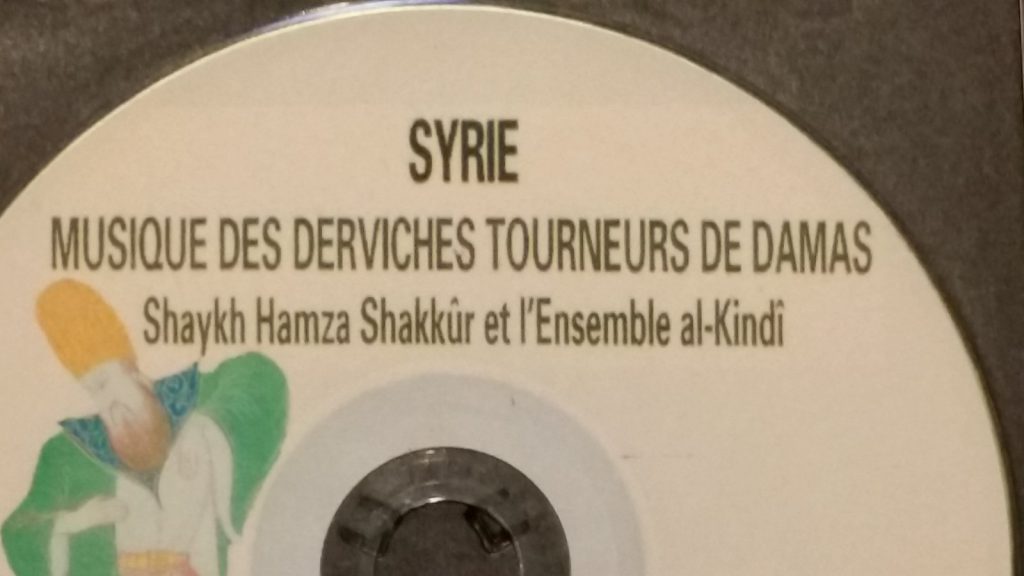On a visit to Damascus in 2009, on the recommendation of two women I met in a CD shop, I purchased ‘Musique Des Derviches Tourneurs de Damas’
Al-Kindi, who was born in Basra and lived in the ninth century, was known as ‘The Philosopher of the Islamic empire’.
L’ensemble Al-Kindi
“Established in 1983 by Julien Bernard Jallal Edin Weiss in homage to Al-Kindi, a philosopher and theorist of Arab-Muslim music, the musical ensemble (takht designating in Arabic music, a small traditional formation of chamber of learned music comprising oud , Qanun, violin, ney and riqq) is renowned for the quality of his interpretation and the rigor of his work on Arab-Muslim musical traditions, performing the repertoire of scholarly music, re-evaluating instrumental practice.The aim of the ensemble is to go to the source of religious or secular music, by expurging them from their ornaments in order to seek the original purity of music and its direct link to Allah. The group is often accompanied by touring dervishes during its concerts such as Sahin Nasir of Istanbul, Maher and Hatem Al Jamal of Damascus, and Yahyah Hamami and Yousef Shreymo of Aleppo.”
The above is a translation from French of the description to the Youtube video: L’ensemble Al-Kindi avec les Derviches Tourneurs de Damas au Café de la Danse (21/10/2013)
The “Fondé en 1983 par Julien Bernard Jallal Edin Weiss en hommage à Al-Kindi, un philosophe et théoricien de la musique arabo-musulmane, l’ensemble musical (takht désignant en musique arabe, une petite formation traditionnelle de chambre de musique savante comprenant oud, qanûn, violon, ney et riqq) est réputé pour la qualité de son interprétation et la rigueur de son travail sur les traditions musicales arabo-musulmanes. Il exécute le répertoire de la musique savante en revalorisant la pratique instrumentale, rétablissant un juste équilibre souvent rompu à la faveur exclusive du chant. L’objectif de l’ensemble est d’aller à la source des musiques religieuses ou profanes, en les expurgeant de leurs ornementations afin de rechercher la pureté originelle de la musique et son lien direct à Allah. Le groupe est souvent accompagné de derviches tourneurs lors de ses concerts tels que Sahin Nasir d’Istanbul, Maher et Hatem Al Jamal de Damas, et Yahyah Hamami et Yousef Shreymo d’Alep.”
